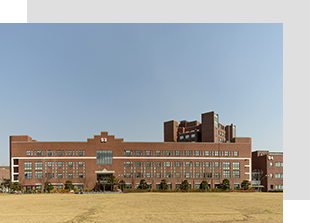Academics
Mentoring the next generation of ambitious scientists is the hallmark of GIST Professors
School of Life Sciences

SCHOOL OF LIFE SCIENCES
- Homepage : https://life.gist.ac.kr
- E-mail : life@gist.ac.kr
- Tel : 062)715-2482~3 / Fax : 062)715-2484
Life science focuses on the study of complex and mysterious phenomena inherent in life, and is composed of thousands of physical and chemical principles. Therefore, a thorough understanding of basic sciences is essential of the efficient and successful study of life science.
Rapid progress in biochemistry and molecular biology has enabled the examination of life phenomena at a molecular level. Life science is considered to be a contemporary frontier science mainly because of its methodological approaches using cutting-edge technologies, and also due the fact the outcomes of these studies have potential to significantly improve the well-being of human life.
The basic philosophy of this Department is to study the complex phenomena of life through the use of modern molecular biological methods. The knowledge obtained from this basic research will then be effectively used by researchers in applied fields.
Major Research Areas
- Cell dynamics imaging and logistics
- Cell aging and clearance
- Genomics and epigenomics
- Tumor metabolism and suppressor
- Gene therapy and new drug targets
- Osteoarthritis research
- Protein structure and function
- Functional and medicinal proteomics
- Single molecule biology and cellular dynamics
- Membrane protein modulator and drug discovery
- Regulation of neural circuitry and IT control
- Observation of germ cells and gene discovery
- Brain engineering and neurodevices
- Observation of vascular endothelial cells and vascular markers
- Molecular neurobiology
- Immune synapse and cell therapy
- Regulation of cancer, autoimmune diseases
- Regulation of inflammatory diseases
- Dynamic interaction of immune system and stem cells
- Tissue regeneration and disease development